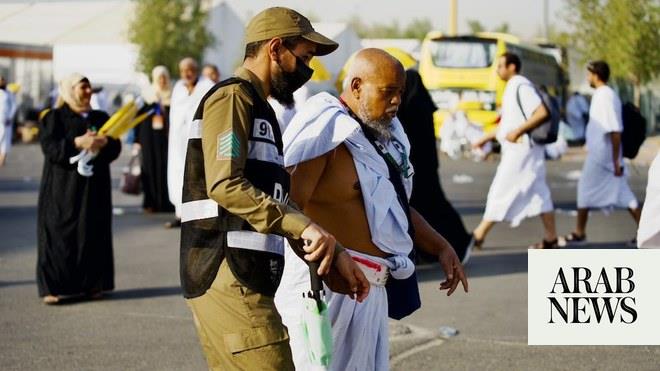
ost people who fast during Ramadan will experience mild dehydration, especially if the weather is hot
DUBAI: Drinking fluids is vital for every function of the body.
Fluids help transport nutrients to your body’s cells, flush out the bacteria and toxins from the bladder, maintain proper kidney function, and prevent constipation.
Proper hydration maximizes athletic performance, boosts energy levels and delays muscle fatigue.
Most people who fast during Ramadan will experience mild dehydration, especially if the weather is hot.
This may cause headaches, fatigue, constipation, and a lack of concentration. Studies have shown that even 1% dehydration (the equivalent of 1% of the body"s weight in water loss) will produce negative effects on mental and physical function.
Remember that you might get dehydrated even when seated at your desk without much physical effort.
Secrets of hydration:
1. Drink water
Start your iftar with two glasses of water. Aim for at least 1.5 liters (6 cups) throughout the night until sahoor.
Do not drink all the required water at one time. This will put stress on your kidneys.
For those wondering whether it is best to drink warm or cool water, this is my answer: If you are sweaty, overheated or have just finished exercising, cold water will both rehydrate and refresh you.
Warm water on the other hand will make you less thirsty and will help with digestion. Warm water helps blood circulation which is very convenient as a muscle relaxant and an aid against constipation.
Randa’s tip: Water is good any way you drink it and at any time. Establish a schedule for drinking or associate it with a certain task as a reminder (for example, every time you go to the kitchen or in between TV commercial breaks).
2. Be smart about the other fluids you drink.
Traditional Ramadan drinks:
Licorice (erk sous) and tamarind beverages help lower acidic secretions. Licorice is not recommended for those with high blood pressure.
The apricot-derived juice known as Qamar al-Din is known for helping with bowel movements and cleansing the intestines.
Remember that all of the above drinks are high in sugar and calories. Drink wisely.
The apricot-derived juice known as Qamar al-Din is known for helping with bowel movements and cleansing the intestines.
Remember that all of the above drinks are high in sugar and calories. Drink wisely.
Milk-based drinks:
A smart idea to consider is drinking milk or yogurt. They hydrate and provide calcium and other minerals and vitamins that are probably not ingested at main meals during this holy month.
Soup:
Do not skip your soup at iftar, especially if it is diluted with broth, as it not only hydrates your body but also provides you with the electrolytes lost during the day of fasting.
Fruits and vegetables:
Fruits and vegetables are both hydrating and loaded with minerals, vitamins and antioxidants.
Examples of water-rich fruits and vegetables include: cucumber (96% water), tomato (95%), spinach (93%), watermelon (92%), pineapple (87%), orange (86%), and apple (85%).
Watch out for fruit smoothies that have added milk, sugar, nuts, or oats as they are loaded with calories.
Beetroot juice:
Beetroot juice is my recommendation this year. A cup of beetroot juice usually has around 100 calories and 25 grams of carbohydrates.
Beets are a good source of folate, potassium, calcium, fiber, antioxidants, and nitrates. Not only do they hydrate, but they also lower blood pressure and increase stamina in athletes as they help transport oxygen by stimulating blood circulation.
Randa’s tip:
The vitamin and mineral nutrition in cooked beets is reduced through heating. Making beet juice from raw beets is a better option.
Ramadan Kareem.











